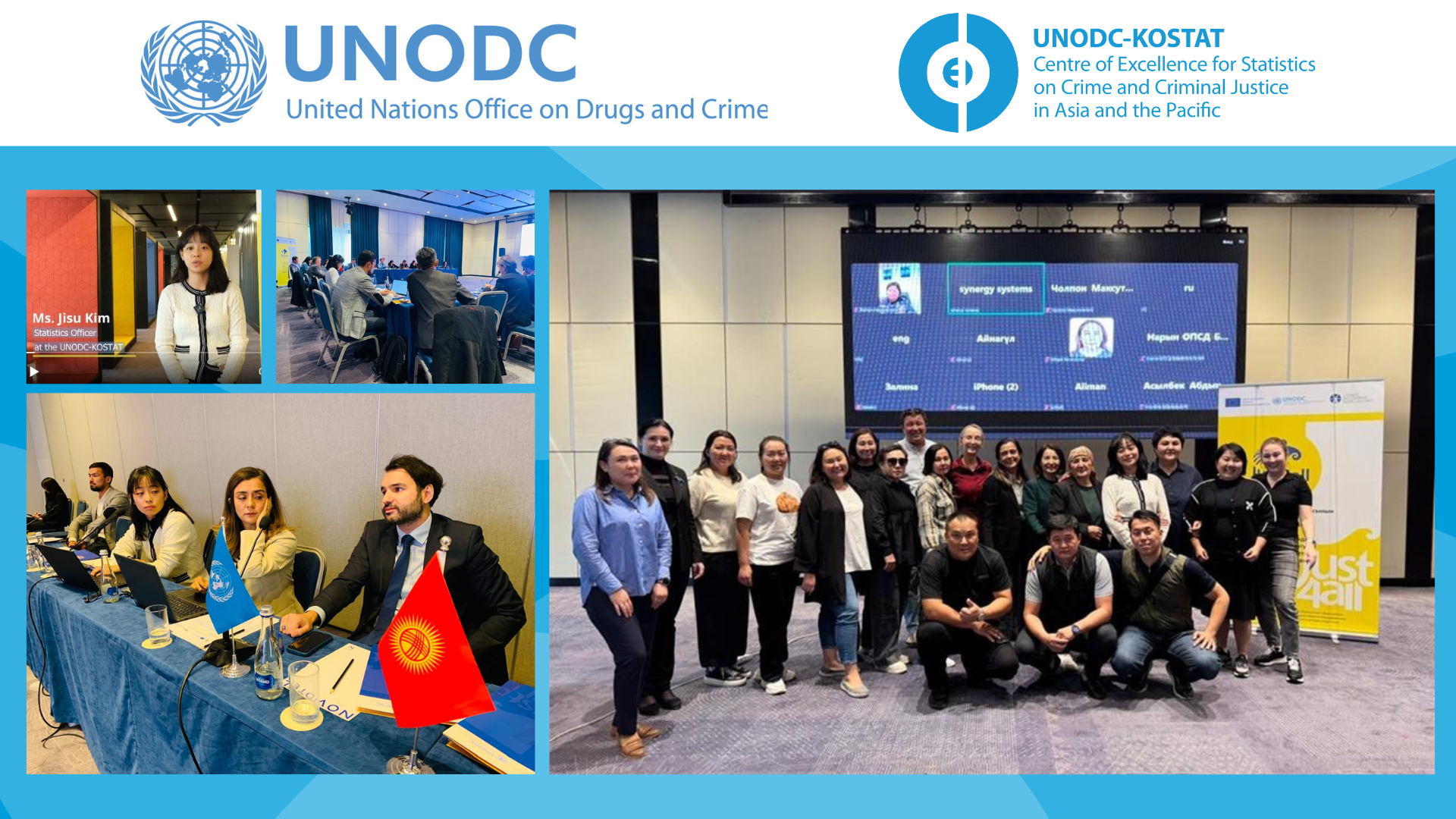
Bishkek (Kyrgyzstan), 30 September – 4 October – As part of UNODC’s ongoing efforts to enhance crime and criminal justice statistics, the UNODC-KOSTAT Centre of Excellence (CoE) played a pivotal role in supporting the implementation of Kyrgyzstan’s National Crime Victimization Survey (CVS).
During the week-long mission, the CoE, the UNODC Information Centre, and UNODC Kyrgyzstan held a series of individual meetings with key national stakeholders – such as the Ministry of Justice (MOJ), General Prosecutor Office (GPO), Ministry of Internal Affairs (MIA), and National Statistical Commission (NSC) – and conducted a practical workshop where all stakeholders participated to establish clear roles and coordination, review draft methodologies, and maximize the utility of survey results.
Throughout the mission, the UNODC team stressed the importance of collecting reliable data on unreported and unrecorded crimes, highlighting how CVS data will complement administrative records to provide a more complete picture of crime in Kyrgyzstan. This includes capturing information on victims, perpetrators, and public perception of safety, ultimately contributing to better policymaking and crime prevention strategies. The workshop featured a session from national institutions, detailing their works and responsibilities in producing and managing data, to deepen understanding of existing data sources in the country and the national crime and criminal justice statistics system. A dedicated brainstorming session invited all participants to review and share insights into the draft methodologies to strengthen the effectiveness of national CVS. Positive engagement and support from all parties demonstrated a collective commitment to the survey’s successful implementation.
The UNODC team also delivered a two-day fieldwork training for interviewers and supervisors, providing in-depth guidance on conducting interviews with a sensitive nature, addressing ethical considerations, and protecting the respondents’ confidentiality. The training emphasised practical skills such as securing informed consent, navigating sensitive topics like violence, and managing non-response and operational challenges in the field. Participants engaged in hands-on exercises, including role-playing interview scenarios to understand interviewer and respondent dynamics, receive peer feedback, and discuss common fieldwork challenges such as non-response and technical issues. Moreover, group discussions were held to review these exercises, allowing participants to share experiences and refine their approaches. The discussions helped finalize the survey’s operational details, including the decision to name the survey the “Public Safety Survey” and the strategy for the initial contact with respondents.
With ongoing support from the CoE, the next steps involve finalizing survey instruments, questionnaires and methodologies, and fieldwork plans, while keeping local authorities and national stakeholders informed of progress. The results of the Public Safety Survey, Kyrgyzstan’s National Crime Victimization Survey, are expected to contribute to shaping more responsive and effective crime prevention policies, aligning the country’s criminal justice system with international standards and making it more people-centred.
Further information on the CoE can be found here, Twitter @CoE_UNODC and Facebook @UNODC.KOSTAT.CoE.